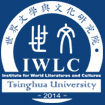Navigation
“I have seen sidereal archipelagos!”: Visions of a Postcolonial Geography in Rimbaud’s “The Drunken Boat”
Arthur Rimbaud’s most celebrated verse poem, “The Drunken Boat” (“Le Bateau ivre”), has generally been read as a demonstration of his wild, hallucinatory poetics and also a prophecy of this poetics’ ultimate failure. The drunken boat seems to follow the typical path of inebriation, substance-induced or not: an exhilarating jaunt into alternative worlds and dreamscapes, followed by the sobering and disappointing experience of “coming down” again towards the “real” world. When Rimbaud himself gave up poetry at the age of twenty-one, “The Drunken Boat” seemed a perfect foretelling of his burn-out. From a postcolonial perspective, however, it is crucial to evaluate how the poem positions the European continent, which is the point of departure and return that brackets the boat’s wild “trip” through imaginary spaces of seas and islands. I will argue that, rather than coming “full circle” back to the continent, the poem only returns to Europe after decentering and fragmenting it. The European continent becomes part of what Édouard Glissant calls “the world as an archipelago”—a geography in which landscapes and cultures are not arranged according to a center-periphery logic but, rather, in which they exist in a relationship of equality and mutual interaction. Rimbaud’s poem gestures at such a geography in its images, but it accomplishes this remapping above all through formal and metrical innovations. This talk will therefore include a crash course in French prosody to help show how, in its sonic textures more than anywhere else, the “Drunken Boat”stages the drama of a Europe losing its central place on the world map and being confronted with its own provincialism.


Official Accounts